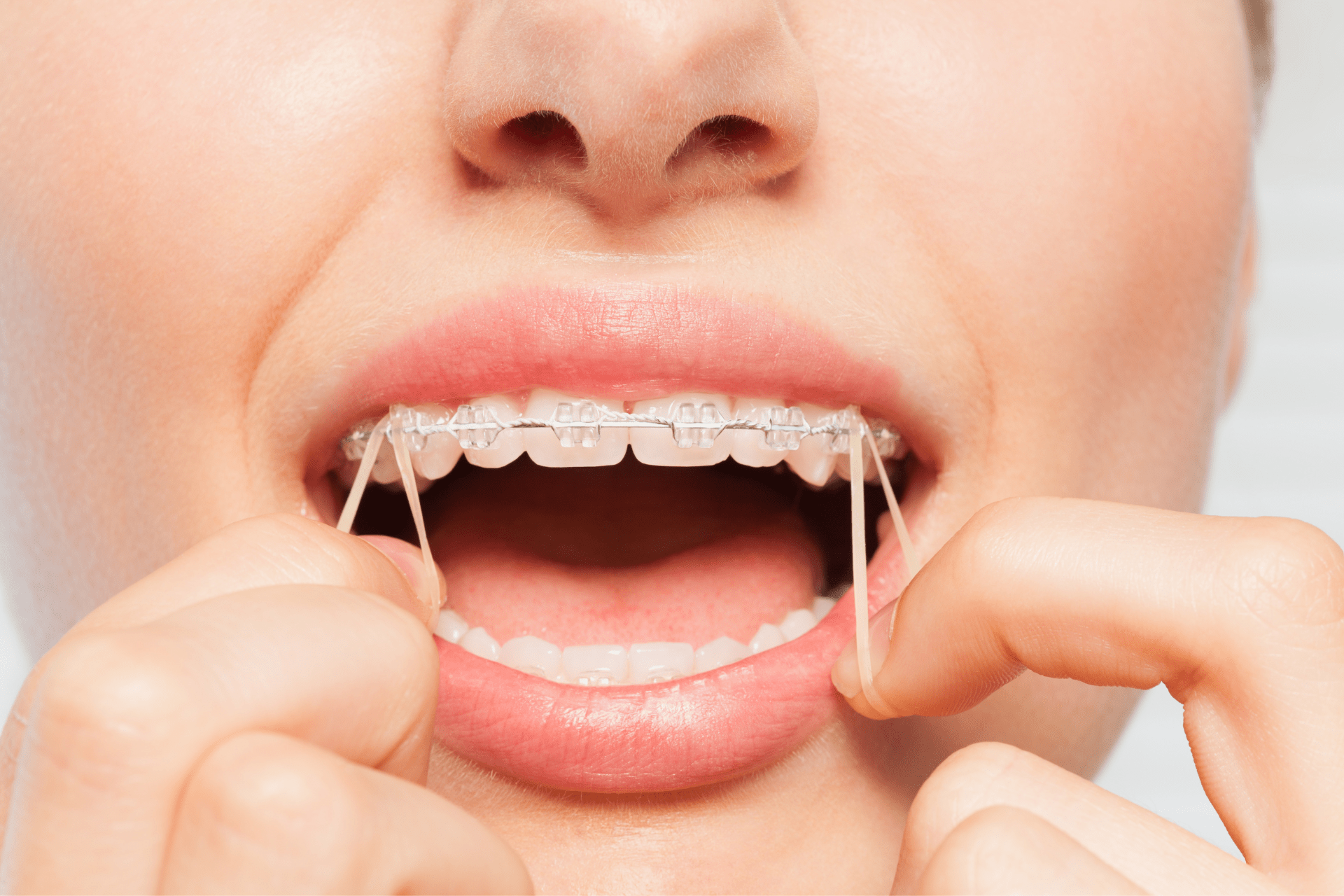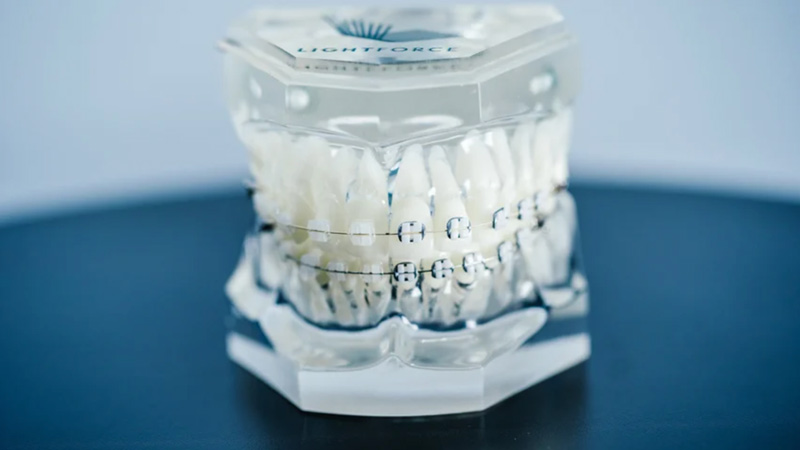Comprehensive Overview to Orthodontics Treatments for Correcting Dental Imbalances
In the world of orthodontics, the trip to achieving a completely straightened smile entails a myriad of procedures tailored to fix dental imbalances. From typical dental braces to invisible aligners and even surgical choices, the area of orthodontics uses a series of solutions to address varying degrees of dental irregularities. Comprehending the ins and outs of each procedure, including their systems, benefits, and prospective disadvantages, is critical in making notified decisions regarding one's orthodontic treatment. As we navigate with the extensive guide to orthodontic procedures for fixing dental misalignments, the intricate details of each method will certainly unravel, clarifying the course toward a harmonious and functional oral placement.
Orthodontic Procedures Introduction

Along with clear aligners and conventional dental braces, orthodontists may likewise advise other treatments like headgear, palatal expanders, or retainers to attend to specific positioning concerns (cumming aligners). These procedures are customized per person's special requirements and may involve a mix of treatments to attain the wanted results. Regular changes and surveillance are critical parts of orthodontic therapy to ensure progression is on track and to make any necessary adjustments along the road. By undergoing orthodontic procedures, clients can not just attain a straighter grin yet also improve their general oral health and wellness and feature.
Typical Dental Braces: Just How They Function
When taking into consideration orthodontic treatments for oral imbalances, traditional dental braces stand apart as a time-tested approach for fixing teeth positioning. Typical braces are composed of brackets, cords, and bands that collaborate to apply continuous pressure on the teeth, gradually moving them right into the preferred placement. The brackets are affixed to the teeth using an unique adhesive, and the wires are threaded with the braces. By changing the stress of the wires, orthodontists can manage the instructions and force used to each tooth, guiding them right into correct alignment with time.
One trick aspect of exactly how standard dental braces work is the process of bone renovation. As stress is related to the teeth via the braces, the bone surrounding the teeth is reshaped to support the new tooth settings. This makeover is essential for the long-lasting stability of the remedied placement. Patients will need routine modifications at the orthodontist's workplace to make sure the dental braces proceed to use the proper stress for reliable teeth activity.
Unnoticeable Aligners: Benefits And Drawbacks
Undetectable aligners use a very discreet and practical option to conventional braces for fixing dental imbalances. These clear, custom-made trays are virtually unseen when put on, making them an enticing choice for individuals looking for an extra visually pleasing orthodontic treatment. One of the key benefits of invisible aligners is their removability, permitting simpler upkeep of dental hygiene contrasted to standard braces. People can eliminate the aligners before consuming or brushing their teeth, reducing the danger of food getting embeded the home appliance and streamlining the cleaning process.

Surgical Orthodontic Options
Surgical treatments in orthodontics existing sensible alternatives for resolving intricate oral imbalances that might not be successfully solved through standard orthodontic therapies. While standard braces and unnoticeable aligners can correct many orthodontic concerns, particular situations need surgical treatment to accomplish ideal results. Surgical orthodontic alternatives are typically advised for serious malocclusions, considerable jaw discrepancies, and instances where the underlying bone framework needs modification to attain appropriate alignment.
One common medical orthodontic procedure is orthognathic surgery, which entails repositioning the jaws to correct useful problems such as difficulty eating or speaking. This surgical procedure is usually done in collaboration with an orthodontist that helps straighten the teeth before and after the treatment. Surgical orthodontics may also include procedures to subject impacted teeth, eliminate excess gum cells, or reshape the jawbone to develop a more unified facial profile.
Prior to thinking about surgical orthodontic choices, patients go through a comprehensive examination to identify the need and potential benefits of such treatments. orthodontics. While surgical treatment might seem daunting, it can considerably boost both the function and looks of the smile in cases where traditional orthodontic therapies drop short
Retainers and Post-Treatment Care

Post-treatment care includes complying with the orthodontist's guidelines diligently. This may include appropriate dental hygiene practices, going to follow-up visits, and putting on the retainers as prescribed. Failure to follow post-treatment treatment guidelines can cause regression, where the teeth progressively return in the direction of their initial positions. Consistent retainer wear, good dental health, and normal oral exams are essential for maintaining the results achieved through orthodontic surgery and ensuring the long-term stability of the corrected oral placement.
Verdict
To conclude, orthodontic treatments use various options for dealing with oral misalignments. Traditional dental braces utilize metal braces and cables to shift teeth right into proper alignment. Unseen aligners offer a more very discreet alternative yet may not appropriate for all instances. Surgical orthodontic discover here choices are available for a lot more severe imbalances. Retainers are frequently used post-treatment to preserve the new placement. In general, orthodontic treatments can successfully improve dental wellness and aesthetic look.
As we browse via the extensive overview to orthodontic treatments for fixing oral imbalances, the elaborate information of each approach will unfold, dropping light on the course toward a harmonious and practical dental positioning. - orthodontics
One of the most typical orthodontic treatments is the usage of dental braces, which are composed of steel brackets and wires that apply mild pressure to progressively move teeth into the preferred setting.When thinking about orthodontic therapies for dental misalignments, standard dental braces stand out as a reliable approach for fixing teeth positioning. In addition, unnoticeable aligners may not be suitable for intricate orthodontic issues that require even more significant teeth motion, as they are usually advised for light to modest cases. Retainers are custom-made orthodontic devices made to hold teeth in their fixed positions after the conclusion of orthodontic treatment.
Comments on “Selecting the most effective Cumming Orthodontics for Effective Braces and Aligners Solutions”